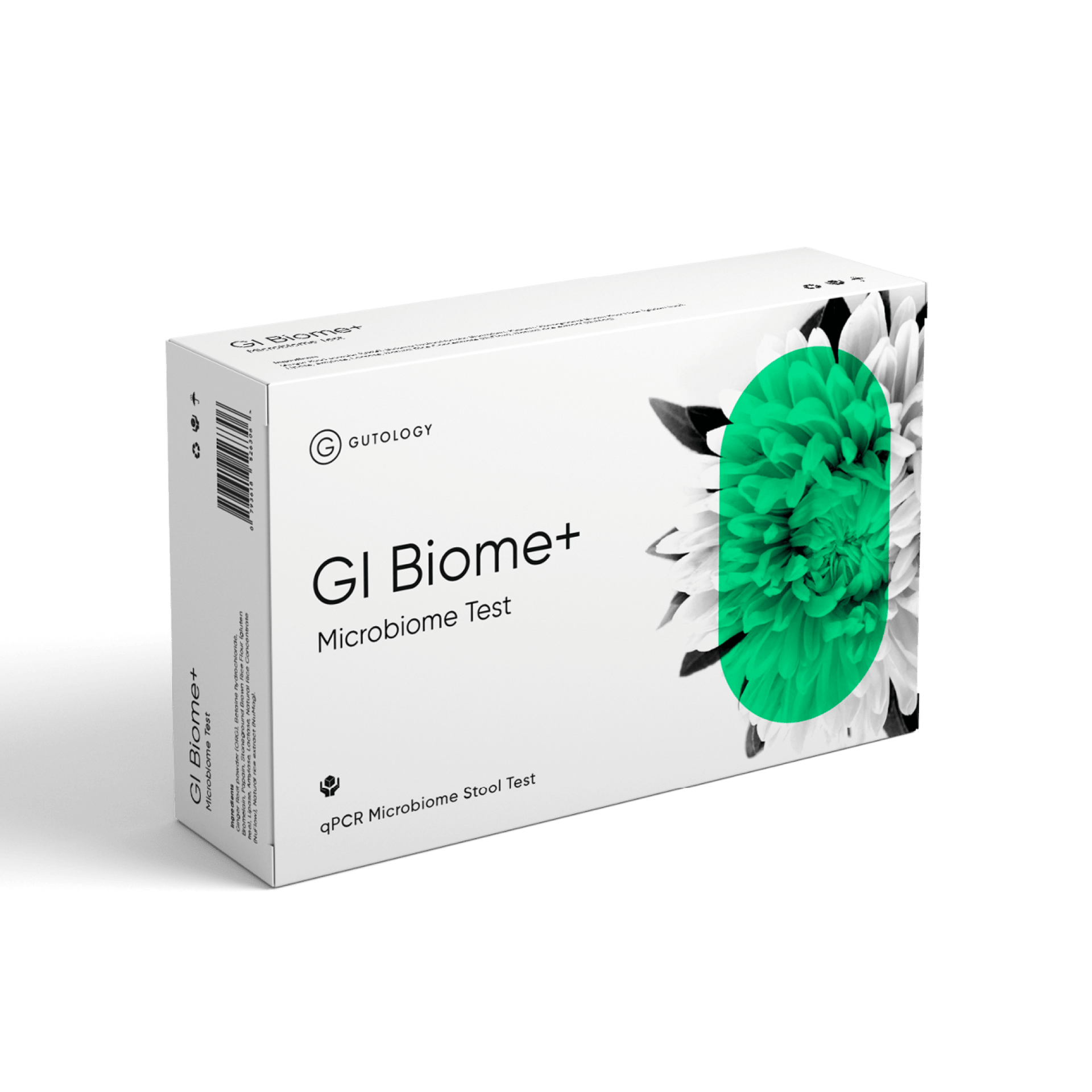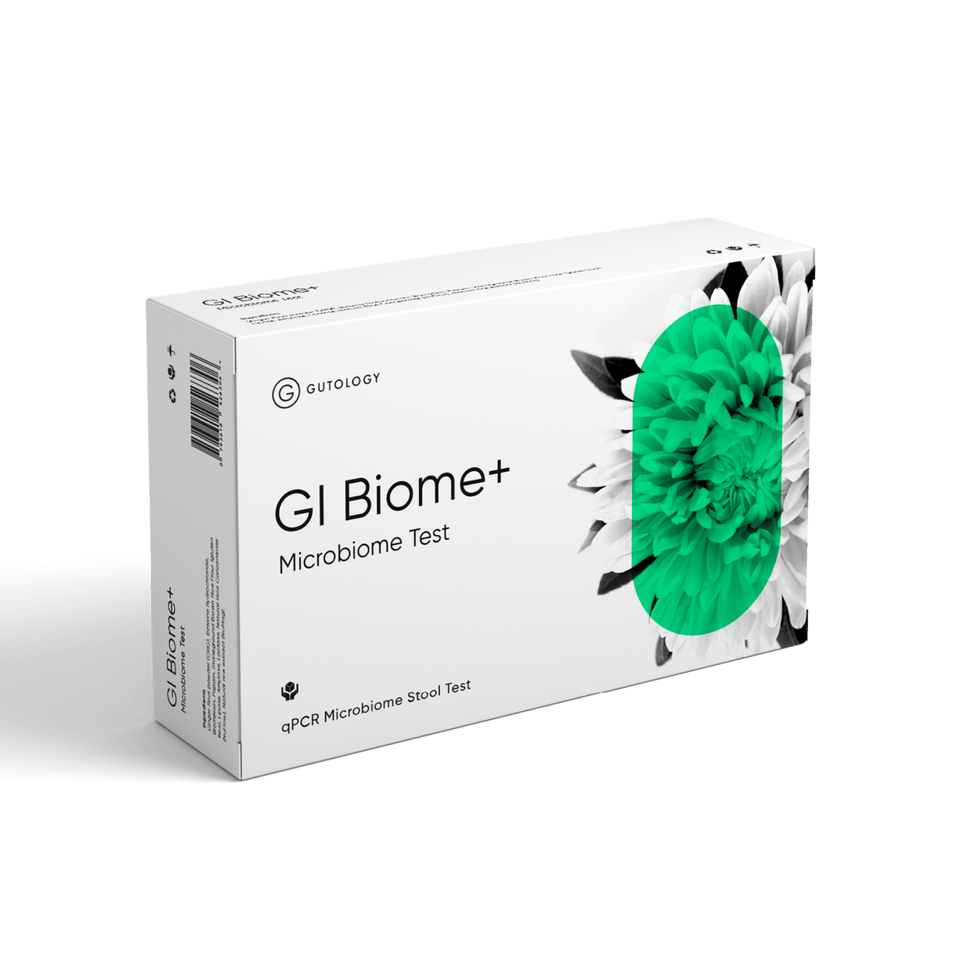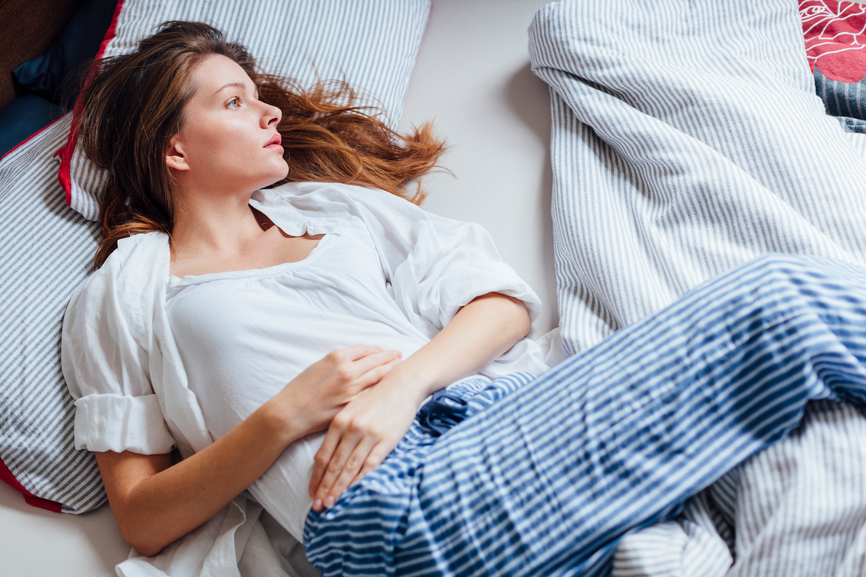Über die Nerven, die den Darm versorgen, werden enorme Mengen an Informationen transportiert, sowohl vom Gehirn zum Darm als auch vom Darm zum Gehirn. Im Darm herrscht so viel Nervenaktivität, dass er manchmal als unser „zweites Gehirn“ bezeichnet wird. 1-4 Diese Verbindungen zwischen Darm und Gehirn beeinflussen so viele Aspekte unseres Lebens: Hungergefühl, 5 Stimmung, 6,7 wie gut wir unsere Nahrung verdauen, wie sich Nahrung durch den Darm bewegt 8 und Schlaf. 9 Wenn Sie an der Stärke dieser Verbindungen zweifeln, denken Sie daran, wie Lampenfieber einen Menschen krank machen kann!
Schlaf und Darm
Es ist seit Jahren bekannt, dass Schlafmangel das Hungergefühl steigern und zu Fettleibigkeit führen kann. 5 Interessanterweise werden unsere Darmbakterien von unserem körpereigenen Schlaf-Wach-Rhythmus beeinflusst. 9 Diese Veränderung kann sehr schnell erfolgen: Studien zum Jetlag zeigen Veränderungen im Gleichgewicht der Darmbakterien, die sich umkehren, wenn die Person nicht mehr unter Jetlag leidet. 10,11 In einem Experiment, bei dem der Schlaf von Tieren absichtlich gestört wurde, verschlechterte sich ihre Darmbakterien innerhalb einer Woche – sie begünstigten Bakterien, die mit Entzündungen in Verbindung stehen (und gleichzeitig stieg ihr Blutdruck). 12 Es scheint sogar, dass unsere Darmbakterien unsere Gene beeinflussen können, die diese Rhythmen steuern! 13 Die Zusammensetzung und die Eigenschaften unserer Darmbakterien hängen also mit unserem Schlafmuster zusammen.
Wir wissen, dass unsere Darmbakterien mit dem Gehirn kommunizieren können, weil sie die Produktion mehrerer Chemikalien beeinflussen können, die unser Körper verwendet, um Signale über unsere Nerven zu senden, darunter Serotonin und Dopamin. 14 Dies ist wichtig, da Serotonin und Dopamin wichtige Faktoren für unsere Stimmung sind. 15 Und was die Auswirkungen auf den Schlaf betrifft, wird Serotonin vom Körper verwendet, um Melatonin (auch bekannt als Schlafhormon) zu produzieren. Etwa 90 % des Serotonins in unserem Körper wird im Darm produziert, daher ist die Gesundheit unseres Darms eindeutig relevant dafür, wie gut wir Melatonin produzieren und damit auch für unsere Fähigkeit, gut zu schlafen.
Wenn jedoch ein Ungleichgewicht unserer Darmbakterien vorliegt, können die weniger hilfreichen Bakterien Chemikalien produzieren, die zu Schlaflosigkeit beitragen können, wie etwa Ammoniak und Milchsäure. 15,17
Eine Veränderung der Darmflora kann den Schlaf verbessern
Schlaflosigkeit geht oft mit Darmproblemen einher. Menschen mit Reizdarmsyndrom (IBS) haben häufiger Schlafprobleme als Menschen ohne Reizdarmsyndrom. 18 Es hat sich gezeigt, dass Maßnahmen zur Verbesserung des Gleichgewichts der Darmbakterien den Schlaf verbessern. 9 Beispielsweise können bestimmte präbiotische Ballaststoffe, die speziell Nahrung für Bakterien liefern, die Serotonin fördern, die Schlafqualität verbessern. 19,20
Kann besserer Schlaf zu einer besseren Darmgesundheit führen?
Natürlich hängt eine erholsame Nachtruhe von anderen Faktoren ab als nur von der Ernährung der richtigen Darmbakterien. Am wichtigsten ist der Zeitpunkt unserer Licht- und Dunkelheitsaussetzung. 21 Es wurden Veränderungen in der Anzahl bestimmter Darmbakterien beobachtet, die unseren Licht- und Dunkelheitszyklen entsprechen. 11 Wie oben erwähnt, führten die Erholung vom Jetlag und das Aufhören, den Schlaf der Versuchsratten zu stören, zu positiven Veränderungen des Darmmikrobioms.
Für einen besseren Schlaf
Wenn Sie unter Schlafstörungen leiden, Schwierigkeiten beim Einschlafen haben, morgens sehr früh aufwachen oder regelmäßig weniger als 6 Stunden schlafen, lesen Sie hier unseren Artikel zur Verbesserung Ihres Schlafs.
Erwägen Sie die Einnahme eines Nahrungsergänzungsmittels, um einen guten Schlaf zu fördern. Unsere Experten haben unseren neuen Schlafkomplex entwickelt , der Ihnen dabei hilft, Ihren Schlaf zu optimieren. Geben Sie beim Bezahlen den Code BLOG ein, um 10 % Rabatt auf Ihre Bestellung zu erhalten.








